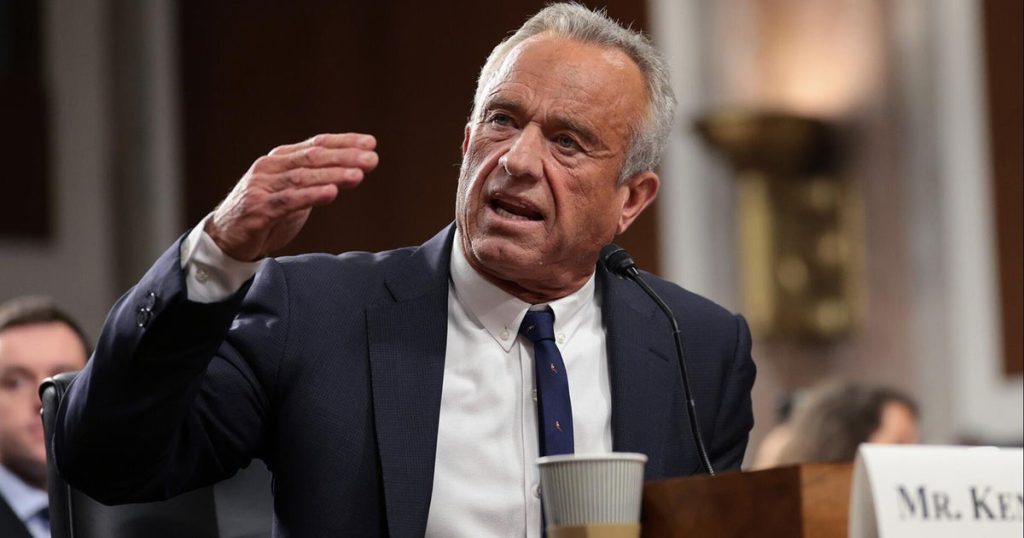In a significant restructuring effort, the Centers for Disease Control and Prevention (CDC) and the Food and Drug Administration (FDA) have seen substantial layoffs within their Freedom of Information Act (FOIA) departments. This move, orchestrated by Health and Human Services Secretary Robert F. Kennedy Jr., eliminates most staff dedicated to processing FOIA requests, raising concerns about transparency and public access to crucial governmental data. As a result, many pending requests may now face uncertainty, potentially hindering the public’s right to know about government actions and decisions.
| Article Subheadings |
|---|
| 1) FOIA Departments Severely Impacted |
| 2) Number of Job Cuts and their Impact |
| 3) The Future of FOIA Requests |
| 4) The Rationale Behind the Cuts |
| 5) Implications for Agency Transparency |
FOIA Departments Severely Impacted
The recent layoff of FOIA staff at the CDC and FDA has left these pivotal departments in turmoil. Reports indicate that the CDC has eliminated all personnel in its FOIA office as part of an extensive job reduction strategy led by Secretary Robert F. Kennedy Jr.. The FDA followed suit, cutting approximately two-thirds of its records request employees, leaving only 50 staff members to manage an overwhelming backlog of requests. This abrupt decision raises questions about the capacity of these agencies to fulfill public information requests, as the majority of remaining officials focus on litigation and alternate forms of disclosure.
Number of Job Cuts and their Impact
The scale of layoffs has raised eyebrows among advocacy groups and public health experts alike. Affected employees not only included those tasked with processing FOIA requests but also teams associated with public communication across various health agencies. Reports suggest that teams within the CDC, FDA, and Health Resources and Services Administration saw massive staff reductions, largely undermining each agency’s ability to promptly provide public information. This is particularly concerning given that the processing of FOIA requests loops in numerous stakeholders, including journalists and non-profit organizations dependent on governmental insights.
The Future of FOIA Requests
With hundreds of FOIA requests pending, the fate of these inquiries now hangs in the balance. Officials at the FDA have expressed concerns that without dedicated FOIA personnel, the department may struggle to address public records requests that play a vital role in ensuring transparency. The full extent of the operational ramifications remains to be seen, as officials have not clarified how these requests will be handled moving forward. Observers worry that this could result in extended delays or a complete stalling of the process, ultimately denying the public access to information that is crucial for holding the government accountable.
The Rationale Behind the Cuts
Secretary Robert F. Kennedy Jr. has positioned these reductions as necessary steps to streamline operations within the Department of Health and Human Services (HHS). An official stated that the intention is to centralize FOIA processing across the department, presumably to allow for more efficient handling of requests from the public. However, critics of this approach note that the abrupt layoffs have not only devastated the existing teams but also appear to violate federal guidelines that prioritize staff retention based on merit, including military service history. This has led to perceptions of unfair practices within federal employment standards.
Implications for Agency Transparency
These drastic cuts come at a critical juncture when public trust in health agencies is already fragile, primarily due to the challenges wrought by the COVID-19 pandemic. Robert F. Kennedy Jr. has previously described government transparency as essential for public health, asserting that citizens need insight into federal operations to restore their faith in these institutions. However, the recent layoffs stand in stark contrast to this call for transparency. By reducing personnel responsible for disseminating critical information, the department may inadvertently exacerbate public skepticism and hinder scientific discourse, which is essential for informed health decisions.
| No. | Key Points |
|---|---|
| 1 | CDC and FDA FOIA offices have faced significant staff reductions. |
| 2 | The number of job cuts has left FOIA requests in limbo. |
| 3 | Plans for creating a centralized FOIA processing are underway. |
| 4 | The rationale behind the cuts includes streamlining and efficiency. |
| 5 | Concerns raised regarding the impact on transparency and public trust. |
Summary
The significant cuts to FOIA departments at the CDC and FDA under Secretary Robert F. Kennedy Jr.‘s direction raise urgent concerns about governmental transparency and public access to information. With the majority of FOIA staff laid off, resolving pending requests could become a daunting task, potentially eroding public trust in health agencies at a time when transparency is more crucial than ever. As HHS aims to centralize FOIA processing, the future remains uncertain for both public information seekers and the broader implications for federal accountability.
Frequently Asked Questions
Question: Why were FOIA staff at the CDC and FDA cut?
The decision to cut FOIA staff was part of a broader strategy implemented by Secretary Robert F. Kennedy Jr. to streamline operations within the Department of Health and Human Services (HHS) and centralize the processing of FOIA requests.
Question: What is the current status of pending FOIA requests?
The pending FOIA requests are now in question due to significant staff reductions, which may lead to delays or difficulties in processing these requests, compromising public access to crucial governmental information.
Question: How might these job cuts affect public health transparency?
The layoffs could hinder the ability of public health agencies to provide timely information, which is essential for maintaining public trust, thereby exacerbating skepticism regarding the reliability and transparency of government agencies.
